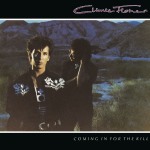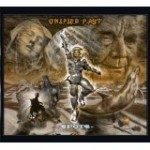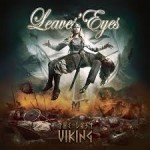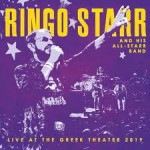Share the post "Interview with CHRISTOFER JOHNSSON & THOMAS VIKSTROM (Therion) – 20 December 2013"
Kristofer Johnsson, leader and founding member of the Swedish Symphonic Metal giants Therion, is a man who has always been in possession of a clear musical vision – a vision that he has promoted and defended with much passion throughout his professional life. Currently working towards the creation of a Rock Opera based on Vladimir Soloviev‘s novel ‘A Short Story of the Anti-Christ’, the highly talented Swede decided to undertake a short tour and present Therion’s fans with excerpts of this colossal effort – a tour that luckily found him visiting the capital of the United Kingdom. It was not long before I made arrangements to interview Kristofer but the welcome addition of singer/partner-in-crime Thomas Vikström ensured that our half hour discussion was filled with caustic comments targeting the band’s past & current naysayers as well as in-depth info on what this Rock Opera is intended to be about and how its creators plan on bringing it to life.
By Yiannis (John) Stefanis.
- Hi, Guys. Thank you very much for taking the time to do this interview. I am happy to have you sitting here next to me as, a year and a half ago, we all assumed that it would take quite some time before we would finally see Therion performing live again for us in London. Quite a few really interesting things have happened since then which I hope we can cover and explain during this interview. First of all, let’s talk about the focal point of this tour which is the promotion of certain musical ideas that will potentially form parts of the Rock Opera that you guys are working for a while.
Kristofer: It is rather us testing them rather than promoting them, I guess.
Thomas: Yes because, what we are doing is that we are throwing out some nuggets of it, some excerpts which I like to describe almost like demos.
Kristofer: That’s what they are as we will end up changing some things in the process anyway.
Thomas: Exactly. We want to sort of see how people will react to these ideas after they go back home, think about these ideas and then comment on the Internet. So far, everything has been very positive – more positive than I thought it would be.
Kristofer: People normally complain a lot about everything when they’re on the Internet and now when they are allowed to complain, or even encouraged to come up with their own opinions they all say “Oh, we really like it”.
Thomas: When you play live you can see their faces. Of course, having not heard these songs live before, their energy levels will be fairly down but most people will stop and listen, even when they are a little bit drunk and you can tell by the expression on their faces that they like what they hear. Its fun and a very interesting thing to observe actually.
- Guys, I have been lucky enough to have followed the band’s career from quite early on and I always had this image of you Christofer being a fairly strong-minded person who will always follow his artistic vision regardless of other people’s opinions…
Kristofer:…and regardless of how that affects my career.
- Indeed. What you are doing on this tour is, first, quite unusual and also quite ‘democratic’ in the sense that the fans are kind of allowed to have a say on what your musical direction should be. What brought this, dare I say, change of mind? Why, in this specific case and moment in time, is it so important for you to ensure that what you create meets people’s acceptance?
Kristofer: Well, it’s not like we will listen super carefully to what people say in order to try to please them – we just want to see a general reaction over what we do. If everybody says “Well, this is not at all what we expected”, then maybe we will need to get back to the drawing board again. It was a bit of a coincidence actually, to be honest, because we had this promoter who got in contact with our booking agents and said: “We want to buy fifteen shows of Therion”. Normally, we would book these shows ourselves through our booking agency but he wanted to buy fifteen shows which means that we don’t get to decide where it is that we play and who with – it’s more like a festival, you know? Fifteen headlining shows. I just thought that this was very weird but then the idea came up that we could actually test the Rock Opera by performing some pieces. So, it was just a coincidence. If this promoter would not have come up with the idea to bring us on tour then probably this would never had happened, as we had said in public that we would not go on tour for years. We were going to do the Rock Opera and then we did the opposite (laughs). But, I mean…
Thomas:…that’s Therion (laughs)!
Kristofer: I would never have a problem changing my mind if there’s a good reason for it – I am not stubborn for the sake of it. If I am proven wrong or there’s a better way of doing things then I don’t mind follow another path. One of the issues is that we would normally make a record, the way we want it, and make it available for sale and if people like it they’ll buy it – if not then they can sod off, simple as that! Like with the French record we did (note: “Les Fleurs Du Mal”); some people love it and think that it was ingenious and some people did not. Well, what’s the problem? If they don’t like it they don’t have to buy it and that leaves everybody happy. With this Rock Opera that we’re working on: it is a very expensive production to stage so it’s not enough to just have basically all our fans liking it – we will need your Mom’s money as well – people who will normally go and see regular musicals or Rock Operas like “Cats” or “Jesus Christ Superstar” and these people have a different approach to enjoying music. I mean, how many people do you know that have a record of “Cats” at home?
Thomas: I do (laughs)!
Kristofer: Yes, but you are a singer that also performs orchestra material but, in general, you don’t get people say “Oh, I have the record of “Cats” at home”.
Thomas: You’re absolutely right there. Also, what is so good about being able to go and test this material, so to speak? Well, it’s such a massive amount of work involved which takes a lot of time so, if we saw that people did not like what we did we should consider whether this is all worth it. It’s more that thing rather than us trying to just please our fans. We want to see their reaction and now that we have the opportunity of doing that we decided to go for it. As Kristofer said, this is not a normal record but a Rock Opera which will take a long time and plenty of effort on our part. You see, it’s not only the music that we need to work on but also the dialogue and the story line that we need to focus on.
- Of course. Talking about the story line: what inspired you to concentrate on this specific literary work (note: Vladimir Soloviev‘s ‘A Short Story Of The Anti-Christ’)? There are many books out there which could easily fit Therion’s style and mood – what made you chose this specific one to work on?
Kristofer: Well, I just kept on from a regular Opera that I have been attempting to write for over ten years now and it just didn’t quite work. I wrote most of the highlights but I could not write the music to fill in the gaps, you know, to take it from A to B. So, at some point, I just realised that I am not going to be able to finish this as I am working with Therion all the time and whenever I did have some free time I simply did not have the inspiration to put this together. It’s been ten years since I started so it’s not going to bloody get finished. So why not just give it up and do what I do best – just make a Metal Opera instead and use some of these parts. I had already cheated a little bit doing that because I took some stuff from the opera I was writing when putting together “The Blood Of Kingu” and it worked fine so I thought “take the highlights of that and whatever else worth taking and make Therion music out of it in a Metal/Rock Opera format”. When I was about to write this first Rock Opera…with this in the background its incredible (laughs) (note: during this part of the interview, a member of Arkona, a Russian Folk Metal support band, was practising his bag pipe)…
Thomas:…rule Scotland! (laughs).
Kristofer:…I wanted to write an Opera on “The Master and Margarita” from Bulgakov first, as this is a fantastic story, but I realised that this would be a pretty big task to do that one. I mean, it’s only the best fictional book ever written in the history of the planet and so it could be a bit shameful to write something that will not live up to the same quality standards and so I said to myself: “Let’s start with something simpler”. This short tale of the Antichrist from Soloviev, well, first of all it’s a much shorter story with a dark feel to it, something that our fans can relate to but, at the same time, it is fine culture so you cannot have any ‘old bags’ whine about the fact that a Metal band is trying to create a devil-worshiping Rock Opera or whatever, you know? It’s fine culture, at least in Russia and every other civilized place. It’s a good way of taking a theme which is easy to work on, as I write quite dark music – I could not write music for a love story or something like that, unless this was to become a fifteen minute Opera. If I’m going to write hours of music it has to be something in the vein of how I write: it has to be something dark or very grand – something very spectacular and ambitious. So, the idea originally was to start with this tale of the Antichrist and make it…even though it could have been in the oratorium if it was not a Rock Opera and, when I would succeed with that I would then proceed with “The Master and Margarita” from Bulgakov. Now, well, Therion is doing this instead and, who knows – if we make a total runaway success with it then maybe we will do the Bulgakov thing or maybe make another album or maybe make a, I don’t know, Russian cover album (laughs). You never know what we’ll do next. What I love with Therion is that I have absolutely no clue what’s on the other side of the hill. Every time I imagine it, the end result never comes close to being what I initially thought it would be. I will just finish whatever I am doing and, you know, then see at how it will end up looking like when I am on the other side of the hill.
Thomas: What I said before, and many other times prior to that, is that I have to tip my hat to Kristofer because he’s doing things to satisfy himself. He doesn’t care if everybody else likes it. It is, of course, a bonus if they do but he honestly doesn’t care, you know? Most people will say such things but they simply lie! He doesn’t lie and that’s the truth – something that makes me respect him highly.
Kristofer: These are very kind words, Thomas. The thing is: everybody thinks that they don’t care about people’s opinion until the moment of truth comes. When Nuclear Blast did not want to release “Les Fleurs Du Mal”, our French covers album, an album consisting of “girly Pop songs from the 60s and early 70s”, turned into Therion material (highly unlikely), I said: “Ok, I will put off the master tape, take a mortgage on my house and just release it myself” – simple as that. So, now I paid back the loan and everything is fine. That’s really the moment of truth. It’s like: do you have your money where your mouth is? Are you willing to put yourself into debt, perhaps even for the rest of your life, for something that you really believe in, or is it convenient to just talk big when the record companies are writing your cheques? There are a lot of bands that always say: “Oh, we just want to do something different” and maybe they do but when the album sells like crap they get back to making albums as they used to sound like before, like they are saying: “Sorry for us trying to experiment”. Take, for instance, Kiss and their album “The Elder”. If that turned out to be a huge success then probably they would have continued to do such things but when they realised that it did not work then they immediately tried to put some shit together to sound like classic Kiss again….
Thomas:…which, I have to say, is a good album though.
Kristofer: Yeah. The A side is fantastic but the B side is so and so. I really like it, but as we said in the previous interview, Queensryche are a good example. They made some fantastic records and then they said: “Oh, we are going to follow this Grunge-y direction” which nobody liked. They started selling less and less records but they were pretty stubborn the first few years so you could say that they kept their money where their mouth was for quite a while, until the money completely ran out and they were: “Hmm, time for Operation:Mindcrime II”. It may have been because of bitchy wives or mortgages that needed to be paid.
Thomas: I’ve got to say, I remember this clearly. We were sitting on the tour bus one day, winter in full swing outside, and all of a sudden Kristofer looks away from his computer screen and says: “We will do a French cover album”. I immediately thought: “There must be a gas leak somewhere on the tour bus – I have to go and report it to the driver” (laughs). It was exactly like that.
- Thomas, it is a real shame that it is impossible to put into words the look that Kristofer gave you as you said what you just said!
Thomas: (laughs) I know, but I thought that this idea was so crazy…at first I did not enjoy the idea at all but then I remember thinking to myself :“It’s so crazy that it’s got to be good”.
- It was indeed because, for the record, “Les Fleurs Du Mal” is a very good album.
Thomas: Thank you.
Kristofer: But Snowy didn’t like it, for instance. It wasn’t like the whole band was like “hurray” or anything. Everybody was quite sceptical at first and when I played the songs to them they were like – “fuck!”. I think that you were one of the first to actually change from being very confused to somewhat carefully positive.
Thomas: Yes, because something so sick has to be good (laughs). Normally, when I work in the studio I work fast. I am normally done with a record within a week, a week and a half. Here, one song took me a months or something like that to complete (laughs). That’s because of the French – I don’t speak French. We actually had to have an interpreter with us in the studio to help me with all this and she would be constantly correcting my accent (note: here Thomas would try to recreate the French accent used in a comical way that both Kristofer and I found thoroughly amusing). I struggled a lot with that.
Kristofer: The funny thing is that, once you finally nailed it, you had to repeat it two more times for the overdubs. It was really weird because, sometimes, you would make certain words sound right the first time round and then fail to achieve the same pronunciation again. So, you would make a long sentence where everything sounded good except of the final word and then you would do the same thing again and do everything wrong except the final word.
Thomas: Exactly, and I am normally a very patient person but, this time round, I had to walk around the studio a few times to calm myself down prior to trying again (laughs).
Kristofer: There was no time for jokes.
Thomas: But, in retrospect, I think that it was a very nice experience and yesterday we went to Paris to play and it was during that show that the audience started, quite spontaneously, singing one of the songs acapella – a song that we haven’t rehearsed at all called “Les Sucettes”. That moment made the hair on my back stand up, you know? I got chickenpox…no, how do you say it?
- Goosebumps??
Thomas: Goosebumps, yes (laughs).
- I really don’t think that you want to have chickenpox at this age!
Thomas: It’s OK, I already had that when I was a child (laughs).
Kristofer: A pretty popular comment which is funny because, according to some ‘experts’ on the Internet, nobody really liked the record. You could see that everyone in the audience wanted to hear the song. It was a sold out show and everybody was saying: “Why don’t you play some more songs from the album for us” but, again, according to the ‘experts’ on the Internet nobody liked the album.
- As a long-term fan I have to say this as it really bugs me: after the period of albums like “Theli” and “Vovin” where your fans got used to a specific musical approach, whereas before they used to be fairly open minded with your musical endeavours, from that point onwards they seem to have lost their patience and understanding as to what makes Therion such a unique band and constantly fail to realise your need for further evolution and development.
Kristofer: From the “Deggial” (2000) album and onwards it’s been constant nagging every time we release a new record! I you were to save the comments on the Internet as a reference and think that these are describing the truth then we have never made a successful album! We sold a little over a million records so we must have been somewhat successful, right? If you were to look on comments made on Internet forums, places where people can throw anything at you without suffering any personal consequences, then what we have been doing is spitting out one album that’s worse than the previous one. I have read comments like: “Oh, you think you can release any kind of turd and put the Therion logo on it”? If somebody was to say such a thing to my face they would be running now, you know? I am a very calm guy but nobody should speak like that to me. Also, everything is really polarised. I mean, you don’t like the record? Fair enough – you don’t need to buy it! But certain people only see things in black and white. It will either be: “Oh, we absolutely love the new album, it’s a masterpiece” or it will be: “It’s the worst thing I have ever heard – it even made my dog throw up”, you know? There’s nothing in between! People are just so schizophrenic and weird and…most people, I don’t think they comment on the Internet; it’s just a small group and that doesn’t give you much of a clue anyway as to where the wind is blowing. Fifty people may write something like that and then you end up selling fifty thousand copies of the same album!
Thomas: I remember when the album “Gothic Kabbalah” (2007) came out, people didn’t like it.
- This is perhaps my favourite Therion album by the way.
Thomas: Actually, it’s one of my favourite albums too. Now, fans come to us often and say: “Can you play a few songs from “Gothic Kabbalah””?
Kristofer: It took them five years – a good five years (laughs).
Thomas: It takes a while for…it seems that it takes a while for fans to really comprehend a new Therion album because, before listening to it, they perhaps have a certain style and direction in mind. They have perhaps made their own predictions on how they think that the new album will sound.
- There are band which unintentionally end up creating such controversies. Take, for instance, Celtic Frost. I mention it here Kristofer because I know how much you love this album and it is also one of my favourite albums of all times. When it first came out in Greece, Metal Hammer gave it an appalling rating – they completely buried it!
Kristofer: Metal Forces gave it zero out of hundred! In England, the magazine had to make a formal apology in the following issue because many people were sending them angry letters!
- And now, when people are talking about “Into the Pandemonium” they are referring to a ground-breaking album which was ‘so ahead of its time” and rightfully so.
Kristofer: Honestly, without “Into the Pandemonium”, Therion, Tiamat, The Gathering, Paradise Lost and probably a whole bunch of other bands would not end up sounding the way they do. This album totally blew our minds and even if we did not end up sounding like that, it did affect our way of thinking brutally! Moonspell is another band which was also influenced by that very album. The whole wave of bands which helped the Metal sound progress in the 90s would not have done it, to the same extent at least, without the influence of that record. There were other bands like Voivod which also helped a lot of the bands at the time to develop their ideas and so on – bands like Opeth, for instance. Mikael (note: Åkerfeldt / singer & guitarist) is a massive Voivod fan like me and even if his music doesn’t sound like that of Voivod it is nevertheless a band which helped us change our approach to music. A very good example with Therion is the “Secret of the Runes” (2001) album, which was the most spat at album ever! It sold half of what the record before did (note: “Deggial” in 2000); the reviews were Ok but this came out at a time when forums became really popular and where most people were getting Internet connections. This album was at the receiving end of so many complaints. Sales-wise you could say that it flopped. I mean, it sold 60,000 which was not too bad but, from people’s reactions to it, you were left to believe that this album will bring the end of the band. I started hearing talks from others in the vein of: “Ok, now that they had their fifteen minutes of fame and they did their classic albums they are finally going down”. Now, if you ask fans today some say that it’s our best record! So, if I would have listened to all the ‘experts’ they would have said: “Wow, don’t go down that path – this is the worst thing ever”. Using Swedish lyrics and having Folk music influences? They would have said that it’s all so wrong! Now, we could easily perform the whole record as an encore!
- Maybe you should take it as a form of compliment, the fact that your music is so well structured and ahead of its time that it will take a few years for people to really appreciate what’s offered to them –that’s all you can do really.
Kristofer: Yeah!
Thomas: It is what it is (laughs).
Kristofer: And that’s how it’s been pretty much since the “Deggial” album. The thing is that, every time we release a new record people think: “What the fuck are they doing”. When we released our second album (note: “Beyond Sanctorum” in 1992) we decided to add keyboards and people started saying things like: “They are posers”.
Thomas: (laughs).
Kristofer: On the third album (note: “Symphony Masses: Ho Drakon Ho Megas) we added a few Middle Eastern influences and people would say: “Who the fuck wants to listen to kebab music in Metal”? Nowadays, if you want to use this expression, we have tons of ‘kebab bands’ and they make a career out of making ‘camel/kebab music’! We then started to mix in some classical influences which was, of course, nothing new because Celtic Frost did it long before us, but we mixed Death Metal and Heavy Metal and people would again say: “Oh, there’s no future in that. Death Metal is brutal while Heavy Metal is different”. Guess what: bands like In Flames made a career out of that mix too! We were indeed a bit too early for all that and we were always considered to be odd and strange and never sold many records as a result. In “Lepaca Kliffoth”, I don’t know what we did there that would be considered to be original – we just continued down the same path, added some opera style vocals and more keyboards but it was still considered to be a weird album. With “Theli”, a lot of people who liked us before came back with comments like: “What is this shit”, “Why is not Kristofer singing anymore” or “This is not as Death Metal band anymore, we are so disappointed” bla, bla, bla. But, since the album did so well, we got ourselves a complete new audience so the old complainers were drowning in the praises of the new audiences, plus, there was no Internet. Then, when we did “Vovin”, we doubled the sales of “Theli” so, even though some people were disappointed that it did not sound like “Theli”, we got so many new fans that again complaints were drowned by praising – plus, the Internet was quite early in its evolution and while some people had dial ups there were no organised forums as popular as the ones that exist today. So, you could say that it’s been pretty much the same all the time. Since we started to make records, there’s always been whining every single time we make a new album. Oh wait – on “Lepaca Kliffoth” people actually complained about my vocals which may actually be one of their few valid points there if you ask me today (laughs).
Thomas: (laughs).
Kristofer: Some of it is fine but some of it I am not all that happy of today. But, I mean, you need to experiment.
Thomas: I have to agree with the fans on this one as I think it is fun when you sing on some numbers. I want Kristofer to do this live, but he doesn’t want to, so…what can I say?
Kristofer: No, I don’t have the throat for it anymore.
- Guys, tell me a few things about the concept of the Rock Opera you are currently working on. The subject matter has universal appeal because, even though the original story was written in the beginning of the 1900s. It is describing the pulse of a period when Japan was increasing its military strength and thus was becoming more aggressive and dominant and the fear that this created to the world and how a man in Russia chose to interpret that situation as the coming of the Antichrist. Nowadays, with conflicts still raging around the world, this subject is still fairly relevant. You mentioned on the Internet that you were planning on changing a few aspects of the story, especially the ending part and that intrigues me even more.
Kristofer: I plan on changing things more than just a little bit.
- Is there something you could perhaps give away at this moment in time or is it still early days for the project in that respect?
Kristofer: No, there are no secrets we wish to keep to ourselves. One of the main things is that there are no female characters in the original story, only men, and you simply cannot have only baritone and bass and tenor singers – you also need to add female characters. Therefore, we need to invent some new characters and rewrite some parts. We need a main female character that can be the chanteuse type like Father John is in the original story. We will remove him and add instead a female chanteuse type character. We will also make sure that we expand this role so that she will be around the whole time rather than just in that religious congress that the original one appears in. Now the end: I don’t like ends that tell you straight on what’s wrong and what’s right. I don’t like happy endings or ‘This is what it should be’ endings. I want endings that make people think! It should be in the eye of the beholder as to who is good and who is bad. The Antichrist is actually doing a lot of nice things: there’s no starvation, there’s no war…basically he’s bringing the world together in a nice way, so you can ask yourselves the question “What’s more important – faith or having a good life”? Many religious people would say ‘faith’ because of their belief of what’s coming in the afterlife and so on but I often wonder if they really do when it actually comes down to it – when you’re really hungry or when you have your daughter raped by soldiers during the war. We really wish to pin point that thing, what’s really is more important, so that people can make their own decisions. We won’t tell people anything like: “This is how it is”. I also want the end to be very…how can I put it…you know the TV series “Lost”? Everybody always wondered how things ended there. Let’s say that you took away the final episode so that people, never really knew. Your personal fantasies over what the end should be are probably much more interesting than the real one because, when you have these really capturing stories, the end is usually disappointing. Like the film “Matrix”: the first one was so good and then, when you have everything delivered for you in the end, it was just such a disappointment. I want to keep a few things open, something that I am sure some people will interpret as “Oh, there’s going to be a part two at some point” but there’s won’t be one. I don’t want to explain it! The answer should be left in the eye of the beholder. There are also other things that are not very practical like the beginning is very long with many things happening. How do you do this in an opera?
Thomas: You really cannot do everything.
Kristofer: I mean, there’s war taking place there while another one takes place somewhere else – it has to become compressed.
Thomas: Yeah, exactly.
- It is also exciting as the author, Vladimir Soloviev, was a highly religious person and during the end of his life he changed his alliances from the Orthodox to the Catholic dogma. You, on the other hand, are more of a universal person so I am looking forward to see how your worldview will influence the story line and how certain aspects will undoubtedly be presented in a new light.
Kristofer: Yeah. Some of the changes are practical while others are more philosophical. If I would have to choose a world religion to follow…I am a spiritual person but not a religious person, but if I were to choose one religion it would have to be Buddhism because you take responsibility for your actions. If you are a shithead, you get shit back; if you’re a good person the things will go better for you.
Thomas: I will have to go for Rastafarian (laughs). No, I am joking: I would opt towards Buddhism like Kristofer, absolutely. I am an agnostic but if I had to choose one faith then it will be Buddhism as well.
Kristofer: I don’t have, however, the need to practice any religion but I did agree with a little bit of that thinking with regards what is right without having the need to follow a specific dogma – especially those that people don’t dare to question. It doesn’t hurt if we get a bit of controversy around it because that’s a good way of promoting our work as well. There are always many layers involved in such things. If I make a decision that I have been thinking about for a long time, it usually has more than layer in it so even when things do not work the way you really want them you still gain certain benefits from them and you’re not left empty handed.
- I understand that this is perhaps an impossible question to answer at this stage but do you have roughly an idea as per when this Rock Opera will be ready for the general public to enjoy?
Thomas: It’s tough to say.
Kristofer: (sighs) If we’re ready with the writing this year I will be very happy.
Thomas: You mean next year, right?
Kristofer: Yeah, next year, sorry (laughs).
Thomas: I was like “What??” (laughs)?
Kristofer: Sorry, sorry. Yeah, if we can finish the writing during 2014 I will be very happy, but things have been going pretty fast. The thing is: in the beginning things are always much easier because we have so many different scenes that you can write music and always make it fit the scene. Having said that, the more scenes you’ve written and the fewer you have in the end the more difficult things will become. In the end we might have a scene where we will be like: “Ok, who can write the music for this”?
Thomas: Yeah.
Kristofer: And that person will most probably end up being Thomas. For me it is very, very difficult to be told what to do.
Thomas: Yeah, and I work better when you put the knife to my throat.
Kristofer: Yeah, when you have a concept like this.
Thomas: It’s good to have that almost opposite approach to things. We’ve had a very good working relationship from the very start and I really like it. It’s like one complements the other, you know?
Kristofer: And then, even when music is ready we will most probably have to make various changes because the dialogues will need to be made better, we might need to make more changes to the actual story, improve certain things, work on the choreography and most probably somebody’s going to say at some point: “Ok, this is not quite working here” so we will need to adjust or fix certain things. Normally you just write the song, you write lyrics to it, you record it and then simply release it. Now, it’s more of an organic thing where everything has to fit and choreographies are involved…
Thomas: Probably it will require help from people from outside the band to help us with such things because Kristofer is not a good dancer (laughs).
Kristofer: No?? (laughs) I am not a very good judge of other people’s dancing skills either so…well, Thomas did some dancing in Rock Of Ages.
Thomas: Yeah, I did some dancing but I would never become a choreographer – far from that.
Kristofer: Perhaps employ a dramaturge, as somebody pointed out the other day, so as to look over the story to see if something is too boring and needs to be spiced up. We need to be very open minded with regards output from the outside because we don’t do this simply for our own sake now: we do this for the sake of your Mom’s money as well as we need it to make this work (laughs). It’s too expensive to make such a huge production and bring it out in different cities every night. We need to maybe play it at a theatre for a week in one city. Then our fans will come at the first day but then we need your Mother and her friend to come too and be interested in the project – people who would normally go and see “Cats”. They need to go “Oh, have you heard about this Rock musical they are doing now which is very controversial and which I have read about in the paper? It’s like a horror movie but a musical – should we go and see it”? Then they will hopefully talk about it with their friends. So, we need mainstream people to come and enjoy it too, otherwise this will be financially very difficult, even though I have a ‘Plan B’ arranged so if this doesn’t work I have other ideas that will so we will not be left empty-handed after having finished it. We are very open at the moment if some fat guy with a really big check book comes to us and says “I want you to perform this thing on Broadway with the support of a full orchestra so I will just write you a cheque” then we will most certainly do it. So, we have to be scalable, you know? We must be able to do this with a small orchestra, big orchestra, a pre-recorded orchestra and other different things.
Thomas: We don’t know yet how this will turn out. We have a goal but nothing is written on paper, you know?
Kristofer: Right now we just need to finish the opera and then show the score to somebody who can tell us if it sucks or not.
Thomas: Yes, we have to take things bit by bit, you know?
- Well, you know guys? I am sure that you will find a way to work this thing out and that’s because you always do and the end result is always top quality. People like and appreciate the honesty behind your music and, you know what: doubters and haters will always be around, so don’t worry about that. Just do what comes from the heart and, with regards this Rock Opera, all I will say is this: “If you build it, they will come”.
Thomas: That’s a good advice indeed – thanks!
Kristofer: Thank you!
Featured Artist: JOSH TAERK
Since early 2020 Josh has been entertaining us with exclusive monthly live sessions,
Check out videos here: https://www.facebook.com/getreadytorockradio
Upcoming sessions:
February 15
March 8
April 12
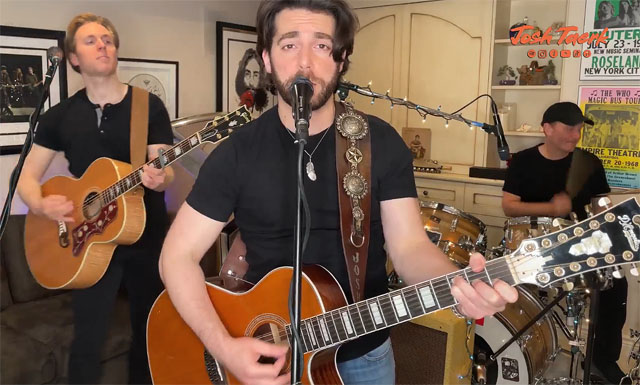
David Randall presents a weekly show on Get Ready to ROCK! Radio, Sundays at 22:00 GMT, repeated on Mondays and Fridays), when he invites listeners to ‘Assume The Position’. The show signposts forthcoming gigs and tours and latest additions at getreadytorock.com. This “Best of 2025 reviewer choices” show was first broadcast on 21 December 2025.
UK Blues Broadcaster of the Year (2020 and 2021 Finalist) Pete Feenstra presents his weekly Rock & Blues Show on Tuesday at 19:00 GMT as part of a five hour blues rock marathon “Tuesday is Bluesday at GRTR!”. The show is repeated on Wednesdays at 22:00, Fridays at 20:00). Pete’s Best of 2025 was first broadcast on 23 December 2025
How to Listen Live?
Click the programming image at the top of the page (top right of page if using desktop)
Get Ready to ROCK! Radio is also in iTunes under Internet Radio/Classic Rock
Listen in via the Tunein app and search for “Get Ready to ROCK!” and save as favourite.
More information and links at our radio website where you can listen live or listen again to shows via the presenter pages: getreadytorockradio.com
Power Plays w/c 26 January 2026
JOANNE SHAW TAYLOR Hell Or High Water (Journeyman Records)
TY FREEMAN One Way Love (indie)
GREY DAZE Monster You Adore (indie)
HOKKA Death By Cupids Arrow (Nuclear Blast Records)
PURPLE DOTS Stared At The Sun (Kycker)
SAINT AGNES Song For Mia (Spinefarm)
STREETLIGHT Shake That Feeling (Frontiers)
Featured Albums w/c 26 January 2026
09:00-12:00 The Best of 2003 – 2025 (Melodic Rock)
12:00-13:00 The Best of 2003 – 2025 (Melodic Hard Rock)
14:00-16:00 The Best of 2003 – 2025 (Singer Songwriter)
Our occasional Newsletter signposts latest additions to the website(s). We also include a selection of recent top albums, based on GRTR! reviewer ratings. The newsletter is sent out a few times a year.
If you’d like to register to receive this occasional mailing please complete the form:
If using a smartphone/tablet please tap here or re-orientate your device
(Note that this registration is separate from site registration which allows you to leave comments and receive daily emails about new content. If you wish to register for this – in addition or separately – please click or tap here – for more information – the form is at the foot of each page. Please read our privacy policy when opting-in to receive emails.
Recent (last 30 days)
Share the post "Interview with CHRISTOFER JOHNSSON & THOMAS VIKSTROM (Therion) – 20 December 2013"

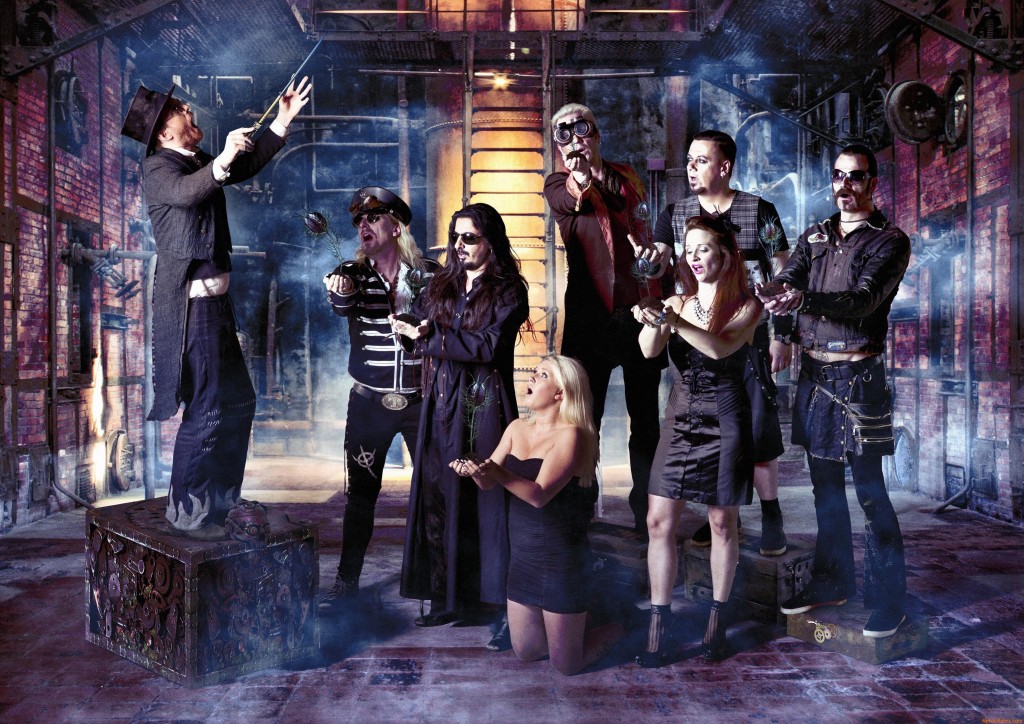
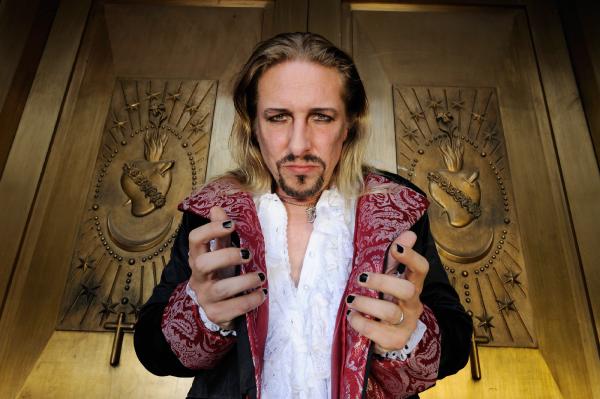
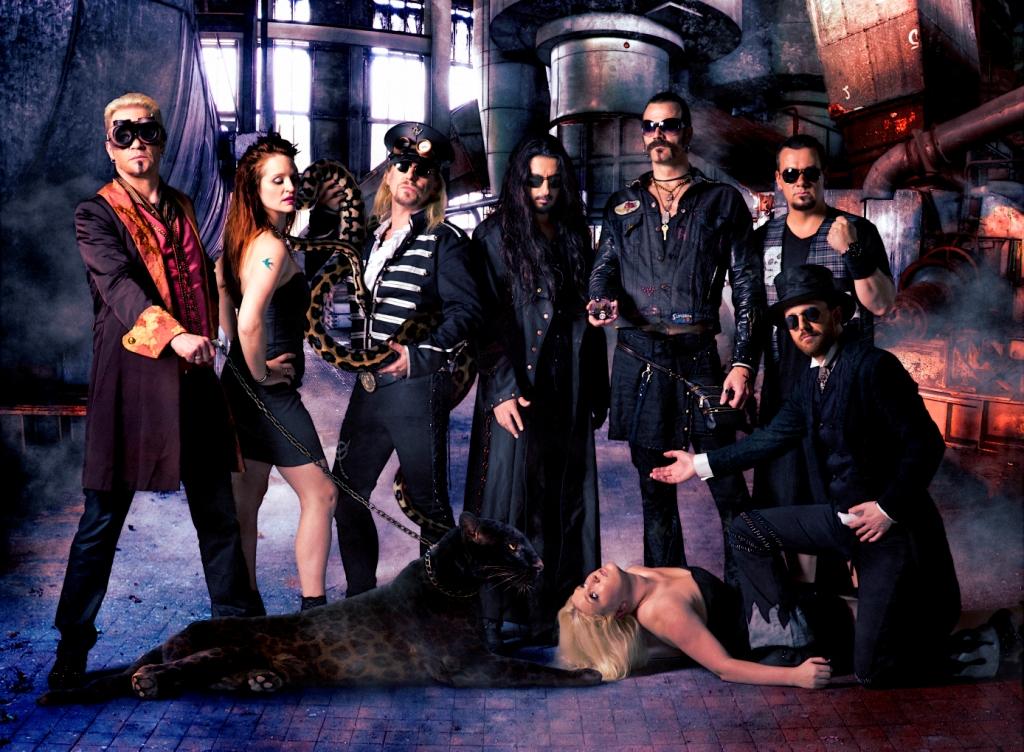
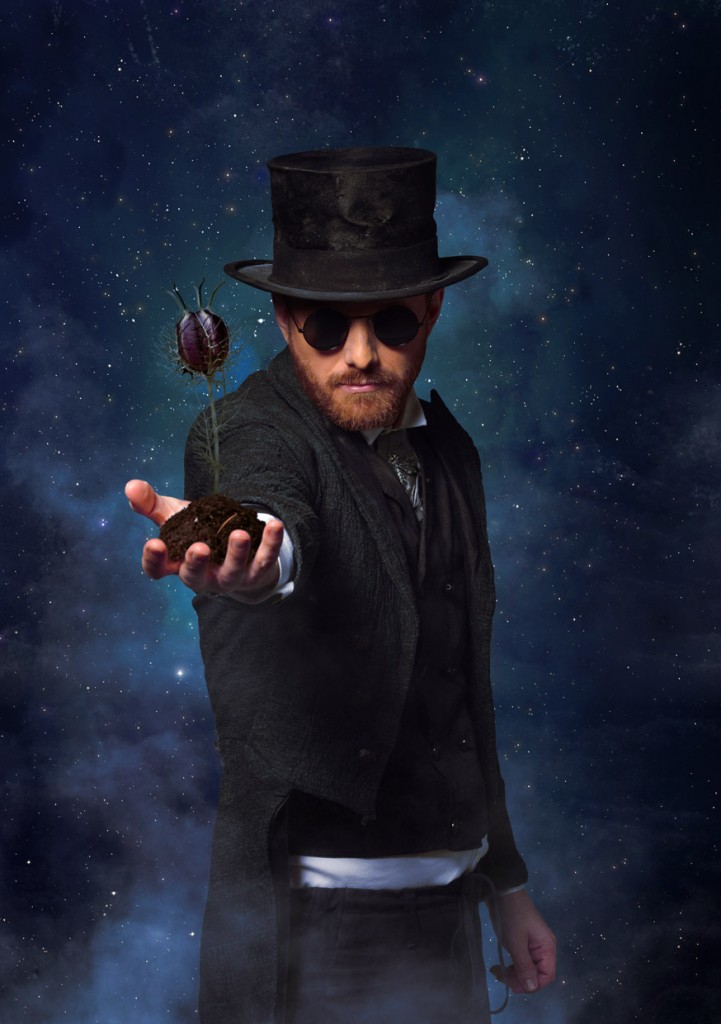
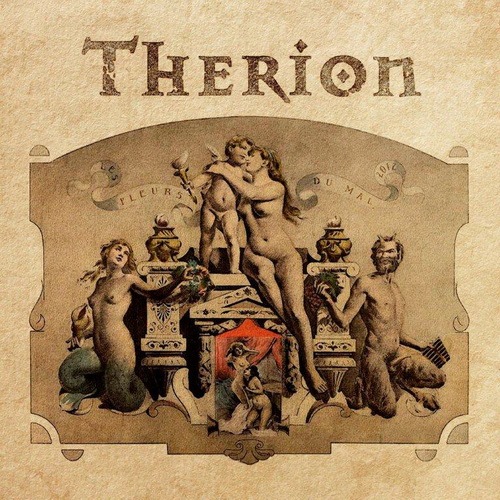
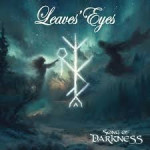
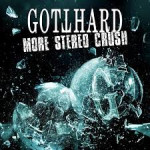

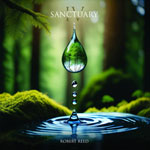

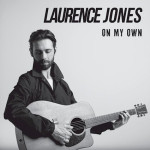
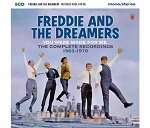
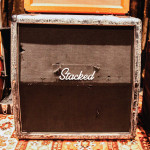

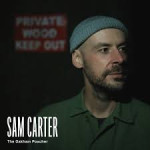
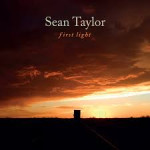
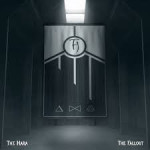
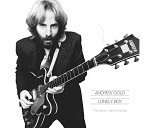
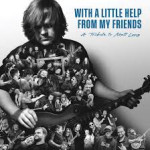

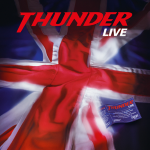

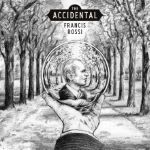
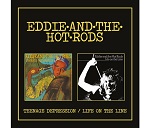
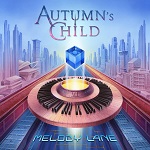
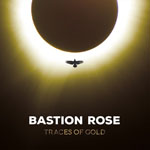
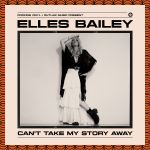

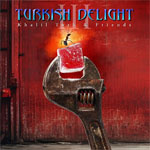

 PDF - you can delete unwanted sections
PDF - you can delete unwanted sections

















